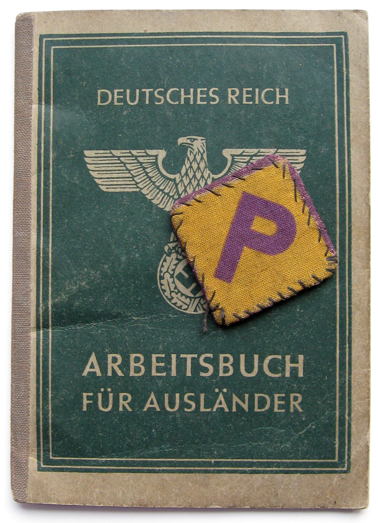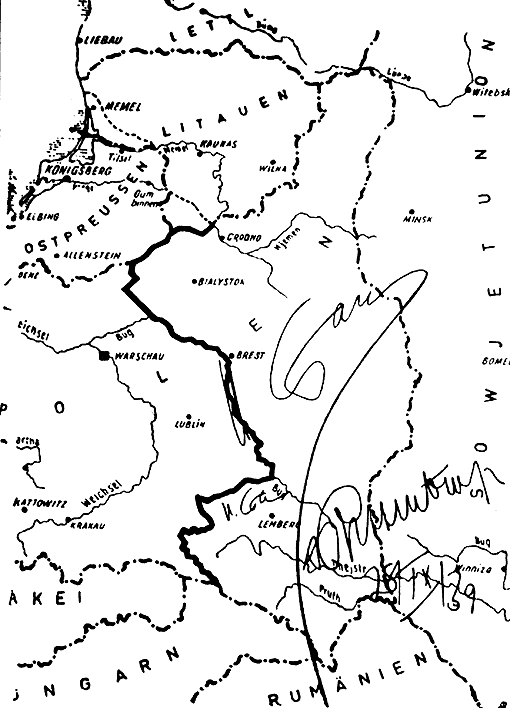|
Złotoria, Kuyavian-Pomeranian Voivodeship
Złotoria is a village in the administrative district of Gmina Lubicz, within Toruń County, Kuyavian-Pomeranian Voivodeship, in north-central Poland. It lies approximately 8 km (5 mi) south-west of Lubicz and 8 km (5 mi) south-east of Toruń. It is located in the historic Dobrzyń Land. The village has an approximate population of 1,700. History The village dates back to medieval Piast-ruled Poland. The oldest known mention in documents comes from 1242. In 1343, Polish King Casimir III the Great built a Royal castle in the village. During the German occupation of Poland (World War II), in 1939, several Poles from Złotoria, including a teacher, farmers and sołtys (head of local administration) Bronisław Murawski, were murdered by the Germans during large massacres of Poles committed in the nearby Barbarka forest in Toruń as part of the ''Intelligenzaktion''. In November 1940, the German ''Schutzpolizei'' carried out expulsions of Poles, who were plac ... [...More Info...] [...Related Items...] OR: [Wikipedia] [Google] [Baidu] |
Countries Of The World
The following is a list providing an overview of sovereign states around the world with information on their status and recognition of their sovereignty. The 206 listed states can be divided into three categories based on membership within the United Nations System: 193 member states of the United Nations, UN member states, 2 United Nations General Assembly observers#Present non-member observers, UN General Assembly non-member observer states, and 11 other states. The ''sovereignty dispute'' column indicates states having undisputed sovereignty (188 states, of which there are 187 UN member states and 1 UN General Assembly non-member observer state), states having disputed sovereignty (16 states, of which there are 6 UN member states, 1 UN General Assembly non-member observer state, and 9 de facto states), and states having a political status of the Cook Islands and Niue, special political status (2 states, both in associated state, free association with New Zealand). Compi ... [...More Info...] [...Related Items...] OR: [Wikipedia] [Google] [Baidu] |
Germans
, native_name_lang = de , region1 = , pop1 = 72,650,269 , region2 = , pop2 = 534,000 , region3 = , pop3 = 157,000 3,322,405 , region4 = , pop4 = 21,000 3,000,000 , region5 = , pop5 = 125,000 982,226 , region6 = , pop6 = 900,000 , region7 = , pop7 = 142,000 840,000 , region8 = , pop8 = 9,000 500,000 , region9 = , pop9 = 357,000 , region10 = , pop10 = 310,000 , region11 = , pop11 = 36,000 250,000 , region12 = , pop12 = 25,000 200,000 , region13 = , pop13 = 233,000 , region14 = , pop14 = 211,000 , region15 = , pop15 = 203,000 , region16 = , pop16 = 201,000 , region17 = , pop17 = 101,000 148,00 ... [...More Info...] [...Related Items...] OR: [Wikipedia] [Google] [Baidu] |
Forced Labour Under German Rule During World War II
The use of slave and forced labour in Nazi Germany (german: Zwangsarbeit) and throughout German-occupied Europe during World War II took place on an unprecedented scale. It was a vital part of the German economic exploitation of conquered territories. It also contributed to the mass extermination of populations in occupied Europe. The Germans abducted approximately 12 million people from almost twenty European countries; about two thirds came from Central Europe and Eastern Europe.Part1 an Part 2 . Many workers died as a result of their living conditionsextreme mi ... [...More Info...] [...Related Items...] OR: [Wikipedia] [Google] [Baidu] |
General Government
The General Government (german: Generalgouvernement, pl, Generalne Gubernatorstwo, uk, Генеральна губернія), also referred to as the General Governorate for the Occupied Polish Region (german: Generalgouvernement für die besetzten polnischen Gebiete), was a German zone of occupation established after the invasion of Poland by Nazi Germany, Slovakia and the Soviet Union in 1939 at the onset of World War II. The newly occupied Second Polish Republic was split into three zones: the General Government in its centre, Polish areas annexed by Nazi Germany in the west, and Polish areas annexed by the Soviet Union in the east. The territory was expanded substantially in 1941, after the German Invasion of the Soviet Union, to include the new District of Galicia. The area of the ''Generalgouvernement'' roughly corresponded with the Austrian part of the Polish–Lithuanian Commonwealth after the Third Partition of Poland in 1795. The basis for the formation of the ... [...More Info...] [...Related Items...] OR: [Wikipedia] [Google] [Baidu] |
Expulsion Of Poles By Nazi Germany
The Expulsion of Poles by Nazi Germany during World War II was a massive operation consisting of the forced resettlement of over 1.7 million Poles from the territories of German-occupied Poland, with the aim of their Germanization (see Lebensraum) between 1939 and 1944. The German Government had plans for the extensive colonisation of territories of occupied Poland, which were annexed directly into Nazi Germany in 1939. Eventually these plans grew bigger to include parts of the General Government. The region was to become a "purely German area" within 15–20 years, as explained by Adolf Hitler in March 1941. By that time the General Government was to be cleared of 15 million Polish nationals, and resettled by 4–5 million ethnic Germans. The operation was the culmination of the expulsion of Poles by Germany carried out since the 19th century, when Poland was partitioned among foreign powers including Germany. Racial policies Following the German invasion of the country, ... [...More Info...] [...Related Items...] OR: [Wikipedia] [Google] [Baidu] |
Schutzpolizei (Nazi Germany)
The or the ''Schupo'' was the State (Reich) protection police of Nazi Germany and a branch of the . ''Schutzpolizei'' is the German name for a uniformed police force. The was the uniformed police of most cities and large towns. State police departments were in charge of protection police, criminal investigation divisions ''Kripo'' (''Kriminalpolizei''), and administrative police. The state protection police comprised a patrol branch, barracked police, traffic police, water police, mounted police, police communications units, and police aviation. Policemen had to have previous military service, good physical and mental health, be of Aryan descent and be members of the Nazi Party. State police departments State police departments (''Staatliche Polizeiverwaltungen'') were local and Kreis police administrations in charge of protection police, criminal investigation divisions ''( Kriminalabteilungen)'', and administrative police.''The German Police'' (Supreme Headquarters Allie ... [...More Info...] [...Related Items...] OR: [Wikipedia] [Google] [Baidu] |
Institute Of National Remembrance
The Institute of National Remembrance – Commission for the Prosecution of Crimes against the Polish Nation ( pl, Instytut Pamięci Narodowej – Komisja Ścigania Zbrodni przeciwko Narodowi Polskiemu, abbreviated IPN) is a Polish state research institute in charge of education and archives with investigative and lustration powers. The IPN was established by the Polish parliament by the Act on the Institute of National Remembrance of 18 December 1998, which incorporated the earlier Main Commission for the Prosecution of Crimes against the Polish Nation of 1991. IPN itself had replaced a body on Nazi crimes established in 1945. In 2018, IPN's mission statement was amended by the controversial Amendment to the Act on the Institute of National Remembrance to include "protecting the reputation of the Republic of Poland and the Polish Nation". The IPN investigates Nazi and Communist crimes committed between 1917 and 1990, documents its findings, and disseminates them to the public ... [...More Info...] [...Related Items...] OR: [Wikipedia] [Google] [Baidu] |
Intelligenzaktion
The ''Intelligenzaktion'' (), or the Intelligentsia mass shootings, was a series of mass murders which was committed against the Polish intelligentsia (teachers, priests, physicians, and other prominent members of Polish society) early in the Second World War (1939–45) by Nazi Germany. The Germans conducted the operations in accordance with their plan to Germanize the western regions of occupied Poland, before their territorial annexation to the German Reich. The mass murder operations of the ''Intelligenzaktion'' resulted in the killing of 100,000 Polish people; by way of forced disappearance, the Germans imprisoned and killed select members of Polish society, identified as enemies of the Reich before the war; they were buried in mass graves which were dug in remote places. In order to facilitate the depopulation of Poland, the Germans terrorised the general populace by carrying out public, summary executions of select intellectuals and community leaders, before they effect ... [...More Info...] [...Related Items...] OR: [Wikipedia] [Google] [Baidu] |
Sołtys
A sołtys () is a head of a sołectwo elected by its permanent citizens in a village meeting (''zebranie wiejskie''). According to data from 2010, Poland had 40 thousand sołtys, 30.7% of which were women. Role and powers Since 1990, a sołtys is an executive of a sołectwo that is supported by a sołectwo council. The detailed powers, duties and responsibilities of the sołtys are decided in the statute made by the gmina council. The sołtys can use the legal protection of a civil servant in his favour. Duties A sołtys has the duty to: *Represent the sołectwo *Organise village meetings *Introduce laws made by the gmina to the sołectwo *Collect taxes *Participate in gmina council meetings History The office of the sołtys was introduced during the Partitions of Poland. It varied among countries. In Congress Poland, a sołtys was an executive branch of a gromada. He was supposed to guard order in the city. In Congress Poland, a gmina was made up of a few gromadas. ... [...More Info...] [...Related Items...] OR: [Wikipedia] [Google] [Baidu] |
Poles
Poles,, ; singular masculine: ''Polak'', singular feminine: ''Polka'' or Polish people, are a West Slavic nation and ethnic group, who share a common history, culture, the Polish language and are identified with the country of Poland in Central Europe. The preamble to the Constitution of the Republic of Poland defines the Polish nation as comprising all the citizens of Poland, regardless of heritage or ethnicity. The majority of Poles adhere to Roman Catholicism. The population of self-declared Poles in Poland is estimated at 37,394,000 out of an overall population of 38,512,000 (based on the 2011 census), of whom 36,522,000 declared Polish alone. A wide-ranging Polish diaspora (the '' Polonia'') exists throughout Europe, the Americas, and in Australasia. Today, the largest urban concentrations of Poles are within the Warsaw and Silesian metropolitan areas. Ethnic Poles are considered to be the descendants of the ancient West Slavic Lechites and other tribes that inhabi ... [...More Info...] [...Related Items...] OR: [Wikipedia] [Google] [Baidu] |
World War II
World War II or the Second World War, often abbreviated as WWII or WW2, was a world war that lasted from 1939 to 1945. It involved the vast majority of the world's countries—including all of the great powers—forming two opposing military alliances: the Allies and the Axis powers. World War II was a total war that directly involved more than 100 million personnel from more than 30 countries. The major participants in the war threw their entire economic, industrial, and scientific capabilities behind the war effort, blurring the distinction between civilian and military resources. Aircraft played a major role in the conflict, enabling the strategic bombing of population centres and deploying the only two nuclear weapons ever used in war. World War II was by far the deadliest conflict in human history; it resulted in 70 to 85 million fatalities, mostly among civilians. Tens of millions died due to genocides (including the Holocaust), starvation, ma ... [...More Info...] [...Related Items...] OR: [Wikipedia] [Google] [Baidu] |









